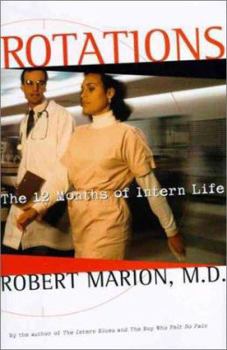Rotations: The Twelve Months of Intern Life
Select Format
Select Condition 
Book Overview
Timely and brilliantly written, this sequel to the acclaimed The Intern Blues (more than 85,000 copies sold), is an exciting look at the real-life challenges confronting young doctors as they struggle... This description may be from another edition of this product.
Format:Hardcover
Language:English
ISBN:0060172630
ISBN13:9780060172633
Release Date:January 1997
Publisher:HarperCollins Publishers
Length:282 Pages
Weight:1.15 lbs.
Dimensions:1.1" x 6.5" x 9.6"
Customer Reviews
1 rating
Twelve Months as an Intern
Published by Thriftbooks.com User , 18 years ago
Rotations: The 12 Months of Intern Life The 'Prologue' says since "managed care" came, life for medical specialists and their patients has become increasingly complicated. Specialists can't schedule tests for patients without first calling the patient's primary care provider to explain why the tests are medically necessary. Then the specialist has to explain to those doing the tests just what the concern in. The primary care provider must authorize a second visit to discuss the results. All the time spent in making phone calls, discussing or arguing about the need for the tests, reduces the number of patients seen during a week or the time spent in evaluation. Does this system benefit the patient of the HMO's stockholders? It makes providing excellent care to patients more difficult. This change in American medical education is to focus on the training of family practitioners, generalists, internists, and pediatricians; subspecialty care is less of a priority. Along with this, in New York City there were mergers between medical schools and teaching hospitals to create monopolies in the delivery of care, and the ruin of many smaller facilities. The Federal government pressured a decrease on residency training programs and the number of doctors by as much as a third in one example. Each of the twelve chapters tell of events for interns during the July to June year. After a year, the interns are now residents. The 'Epilogue' sums up the effects of this stressful year. Dr. Marion gives his analysis of the Bell Commission and the effects of this law in practice. He has some recommendations for reform. Chapter 6 tells how and why "internship" was invented at Johns Hopkins Hospital in the 1890s to meet a financial crisis. Later it was called an "educational necessity. [There is no mention of how this is done in Scotland, England, or on the Continent. What are the comparative results?]





